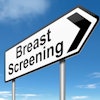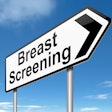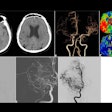Dear AuntMinnie Member,
Tragedy struck again this month in the world of MRI after a patient in South Korea was struck and killed by an oxygen cylinder that was brought into the scanning room. The incident follows an industrial accident last month at a hospital in Utah, when a worker was killed while moving a scanner from one floor to another.
Despite the chronological proximity to the Utah accident, the South Korea incident is most similar to an accident that occurred in India in 2018, when a man was killed also by an oxygen cylinder brought into the MRI suite. The fact that these incidents continue to occur vexes MRI safety advocates, who believe they show that more needs to be done to ensure patients remain safe during exams.
SPECT of heart failure
In other news, new research out of Japan indicates that SPECT scans of patients who have been hospitalized for heart failure could help predict whether they are at risk of life-threatening events.
Our Molecular Imaging Community is also featuring a study on the use of PET/MRI with a radiotracer based on copper-64 to identify blood clots in patients with atrial fibrillation. A survey of Australian nuclear medicine physicians found that a majority would consider performing PET/CT scans of pregnant women under certain conditions, while PET scans of patients with "long COVID-19" failed to find any pathological changes in the brain related to the condition.
Visit our Molecular Imaging Community for more cutting-edge clinical content like this.
Screening saves Black lives
Finally, check out a new article in our Women's Imaging Community of a study that found that starting breast screening at 40 rather than 50 could have a particularly large impact in saving the lives of Black women. In fact, earlier screening would eliminate 57% of the disparity in Black/white mortality from breast cancer.
Other recent stories in the community include coverage of a study of the relative paucity of low-value screening in the U.S. Veterans Health Administration system, an article on how some minority women are at higher risk for second breast cancers, as well as a story on how COVID-19 may have led to a decline in breast cancer diagnoses for minority women -- and why that's not a good thing.


















